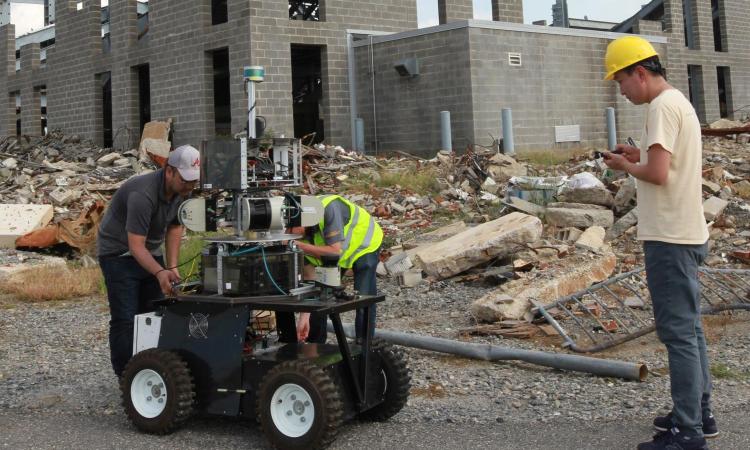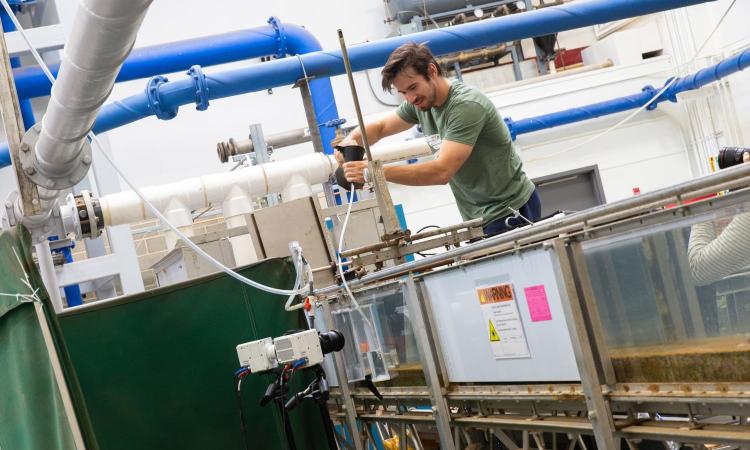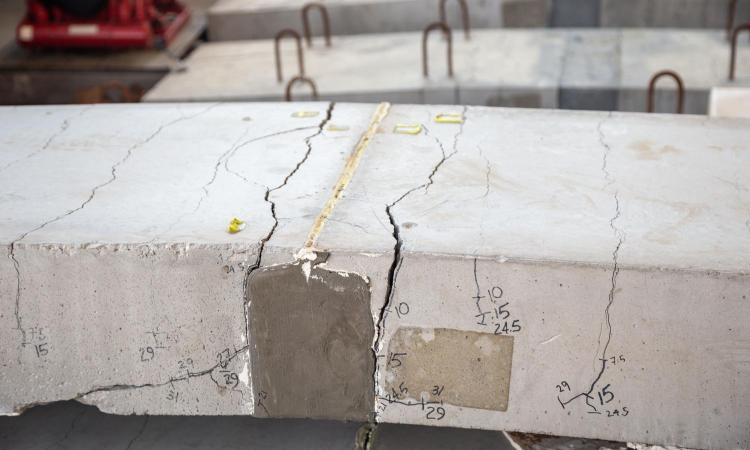
Our Bachelor of Science in Civil Engineering curriculum prepares students to enter professional practice as an engineer, where they can design and build our future society and improve the quality of life for people around the globe. It also creates a strong foundation for students who wish to continue their studies and earn a master’s or doctoral degree.
This program is designed to provide all the knowledge that is essential for a career in civil engineering. Students take a variety of breadth electives in their junior and senior years to expose them to a wide range of civil engineering specialties. Students also have the option to concentrate their studies in one of several optional tracks, including environmental systems, geotechnical systems, infrastructure systems and structural systems.
Already know you’re interested in a master’s degree? Consider the BS/MS degree program, where you can start taking graduate courses in your fourth year and earn both degrees in five years. We also offer opportunities to study abroad, co-op, or work on research as an undergraduate.
Degree Requirements
The program requires 65 semester hours of coursework (128 hours total), including
- 29 hours of core CEE classes
- 12 hours of breadth electives exploring the various areas of the field
- 18 hours of technical electives
- 6 additional hours of other approved electives.
This degree program is designed to provide students with a general education in all areas of civil engineering. However, students may choose to specialize in an optional track, focusing their breadth and technical electives to gain a deeper knowledge in one specific area of civil engineering.
CE Tracks
The Civil Engineering program offers elective tracks to assist students in planning focused coursework within specific subdisciplines. These tracks are advisory in nature and do not constitute official concentrations. Selection of a track is optional and does not carry formal designation within the degree program.
Students should consult the Georgia Tech General Catalog or the Student Services Office for individualized guidance.
Construction Engineering
Learn the skills needed to succeed in the construction industry. Topics include construction planning and estimation, construction safety and health, and environmental impact assessments.
Environmental and Water Systems
This track focuses on the world's most precious resource. Students will study topics including hydrology, hydraulic engineering, stormwater design, and coastal engineering.
Geotechnical Systems
Geotechnical engineers focus on all things at or below the Earth's surface: foundations, dams and retaining structures, earthquakes, soil mechanics and more.
Innovation and Entrepreneurship
Develop knowledge of the business of civil and environmental engineering, cultivate an entrepreneurial mindset, and gain confidence in your ability to innovate.
Structural Systems
Learn to create and sustain healthy structures through courses on topics such as the design of reinforced concrete and structural steel and how to analyze structures and rehabilitate infrastructure.
Transportation Systems
This track focuses on all the transportation systems that make society function. Learn about freeway and interchange design, sustainable transportation abroad, infrastructure systems and more.
CISE Concentration
Designed in partnership with industry professionals, this concentration in Construction and Infrastructure Systems Engineering (CISE) ensures that students graduate prepared with the skills needed for in-demand jobs in the construction industry. Students who complete the courses required for the concentration earn an official transcript designation upon graduating with a degree in civil engineering. Students in the CISE Concentration have the ability to further specialize their elective classes in two areas: Construction Engineering and Management and Infrastructure Systems Engineering.





